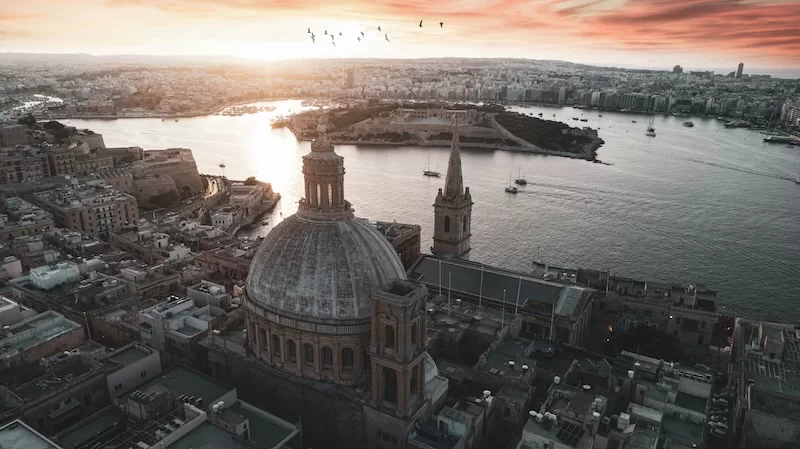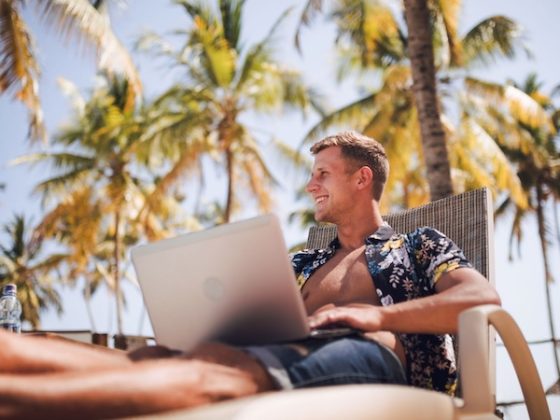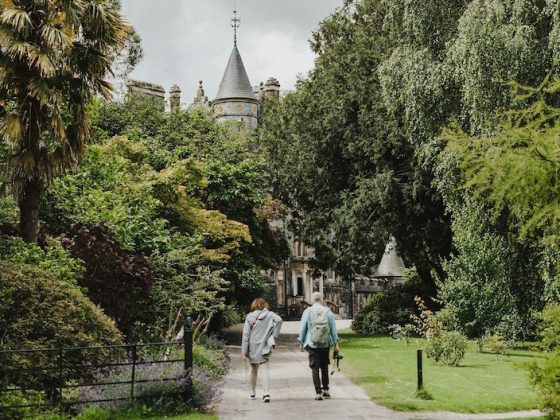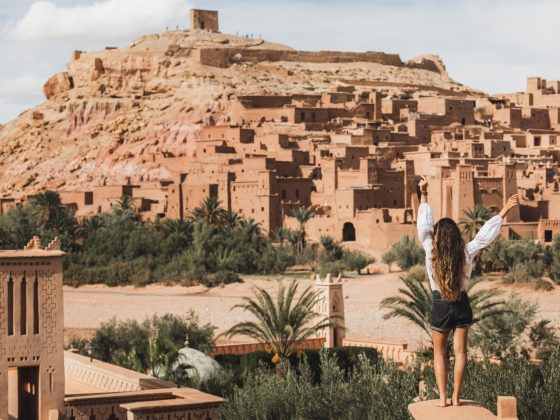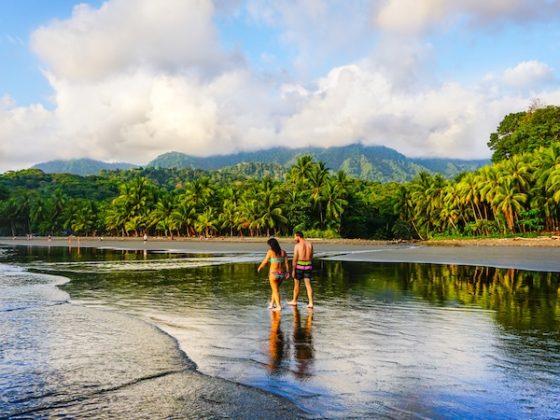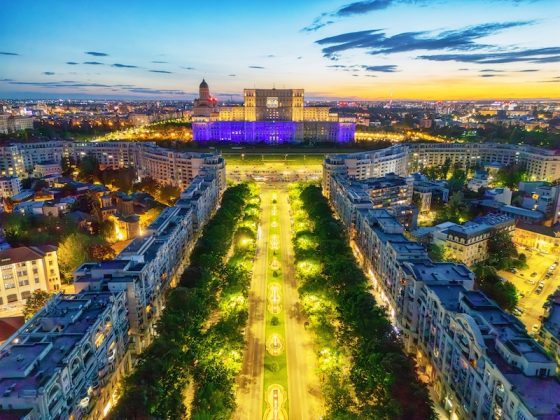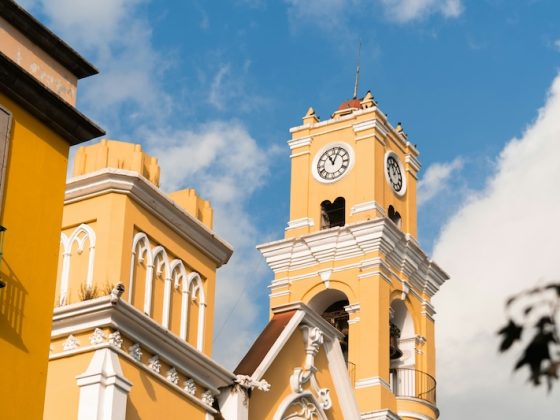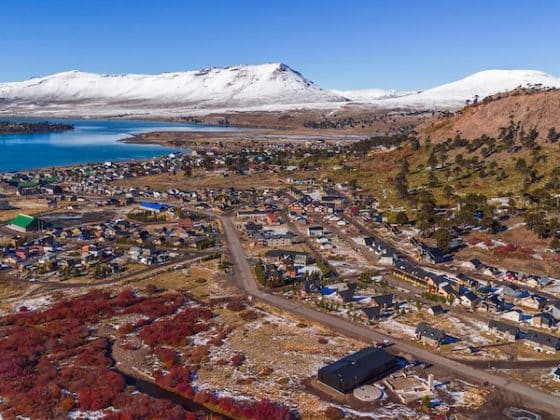Introduction
Few places blend history, calm, and community quite like Malta. The island’s limestone cliffs rise above translucent coves, and every village clock tower seems to move at its own pace. But beyond the postcard calm, visitors and new residents often ask the same question before booking a flight or buying a home: is Malta safe?
Safety is more than crime statistics. It’s how you feel walking home at night, leaving your bag on a café chair, or letting your children play outdoors. In Malta, that feeling is woven into daily life. The country consistently ranks among Europe’s safest destinations, with crime rates far below regional averages. Yet like any society, it has its nuances. Understanding them helps you travel smarter and live with confidence.
Malta’s Reputation for Safety
Malta often appears near the top of European safety indexes. According to Eurostat, only 7.4% of the population reported any occurrence of crime, violence, or vandalism in their area as of December 2023, the lowest rate since 2019, when the figure was almost double. The downward trend points to a country where public security has not only remained stable but improved in recent years. Numbeo’s Crime Index (2025) echoes this, rating Malta at 43 out of 100, below the European average of 52. The U.S. Department of State rates Malta as a Level 1 destination: “Exercise Normal Precautions”, its safest category, and describes violent crime as “rare.” The island’s small size, close-knit communities, and strong police presence help maintain public order.
For tourists, it feels even safer. Violent crime is rare, and locals are famously helpful. Many travelers notice that people still leave their grocery bags unattended while chatting in line, keep car windows open on quiet streets or greet strangers as they pass. That sense of familiarity is not nostalgia; it’s cultural continuity.
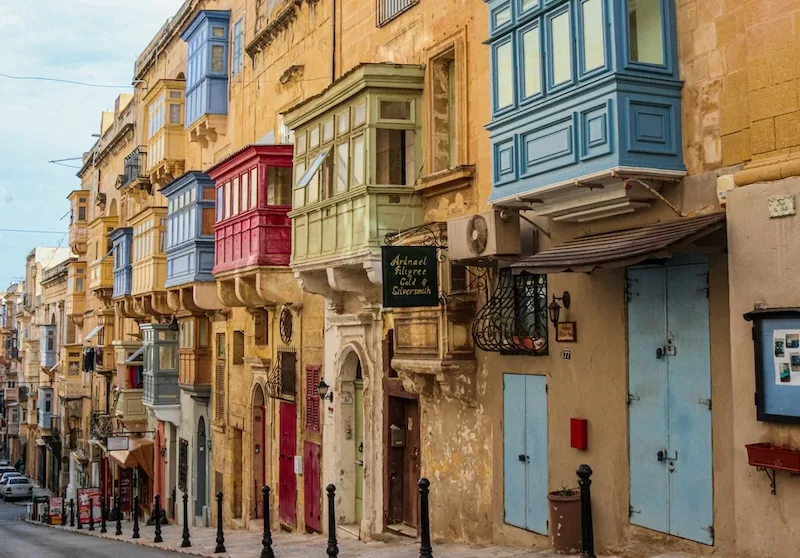
Read More Like This: Malta – A Perfect Expat and Holiday Destination
Reading the Numbers Behind Safety
Safety is never a single figure on a chart. It’s a mosaic built from crime statistics, law enforcement efficiency, healthcare standards, and the level of trust people place in their communities. Global indexes like Numbeo’s Safety Index and Eurostat’s perception surveys draw from both hard data and human sentiment, comparing official police reports with how secure residents actually feel in their surroundings.
A country can post low crime rates yet still rank poorly if its citizens feel uneasy walking home or lack confidence in public institutions. What makes Malta different is that perception and reality line up. Locals describe daily life as calm and predictable, and travelers echo the same sense of ease. The figures support the feeling, and the feeling confirms the figures. In Malta, safety is as much a social fabric as it is a statistic: a balance of trust, visibility, and quiet order that gives the island its steady pulse.
Crime Rates and Real Numbers
Petty Crime and Tourism Hotspots
For a country that welcomes over 3 million visitors a year, Malta’s petty crime rate is remarkably low. Most incidents involve opportunistic theft (pickpocketing, bag snatching, or items lifted from parked rental cars) and tend to cluster around high-traffic areas like Valletta’s bus terminal, Sliema’s seafront, and St. Julian’s nightlife strip. Data suggests that these account for roughly 50% of reported offenses, with a small uptick during the summer months when tourism surges.
Yet even in peak season, these are exceptions rather than the rule. A traveler who keeps a hand on their bag in crowds or stores valuables securely at the beach is unlikely to encounter trouble. The CrimeMalta Observatory’s Annual Crime Review 2024 supports this trend, noting that reported crimes have fallen from 45 per 1,000 residents in 2004 to just 30 per 1,000 in 2024, one of the lowest rates in the European Union. Authorities credit stronger community policing and increased CCTV coverage in busy districts for this long-term decline.
Compared with major European capitals (London, Paris, Rome) Malta’s petty crime levels remain modest. The streets are lively but rarely tense, and scams are far less elaborate than those found in larger destinations. Most locals will tell you the same thing: vigilance helps, but fear is unnecessary.
Violent Crime and Public Security
Violent crime in Malta is among the lowest in Europe. UNODC data shows fewer than 0.8 homicides per 100,000 residents, a rate that has remained steady for more than a decade. Assaults and violent robberies are rare and usually stem from personal disputes rather than random attacks.
Strict gun control laws and the island’s compact geography limit escalation. Firearms ownership is tightly regulated, and drug-related violence (a common issue in many Mediterranean hubs) is minimal here. The Malta Police Force, one of Europe’s oldest, maintains one of the continent’s highest officer-to-population ratios, ensuring visibility and fast response times.
With just over 520,000 residents, the island’s scale reinforces safety in quiet, human ways. People know their neighbors, their local officers, and even the postman’s schedule. That familiarity acts as a social deterrent as much as a comfort, an informal network that underpins Malta’s calm reputation.
Safety for Travelers
Solo Travelers and Women
For solo travelers, especially women, Malta offers a mix of ease and reassurance. The island’s small scale means most destinations are within an hour’s reach, and public transport, though occasionally slow, is dependable and inexpensive.
Women report feeling comfortable walking alone in central areas such as Valletta, Sliema, and Mdina, even late at night. Street lighting is strong, and locals tend to be quick to help tourists who seem disoriented or need directions. In the nightlife zone of Paceville, the energy turns louder and more crowded (closer to a student party scene than a safety risk) so it helps to keep the same awareness you’d use in any busy European capital.
Taxis and rideshare services like Bolt and eCabs are widely available, and hotel staff are often happy to call a trusted driver for guests heading home after midnight. Pickpocketing around bars and ferry terminals is possible but infrequent, and locals often step in if they notice suspicious behavior. For many visitors, the island feels disarmingly open, a place where you can walk alone along the Sliema promenade or the quiet backstreets of Birgu and hear only the sound of the sea and church bells.
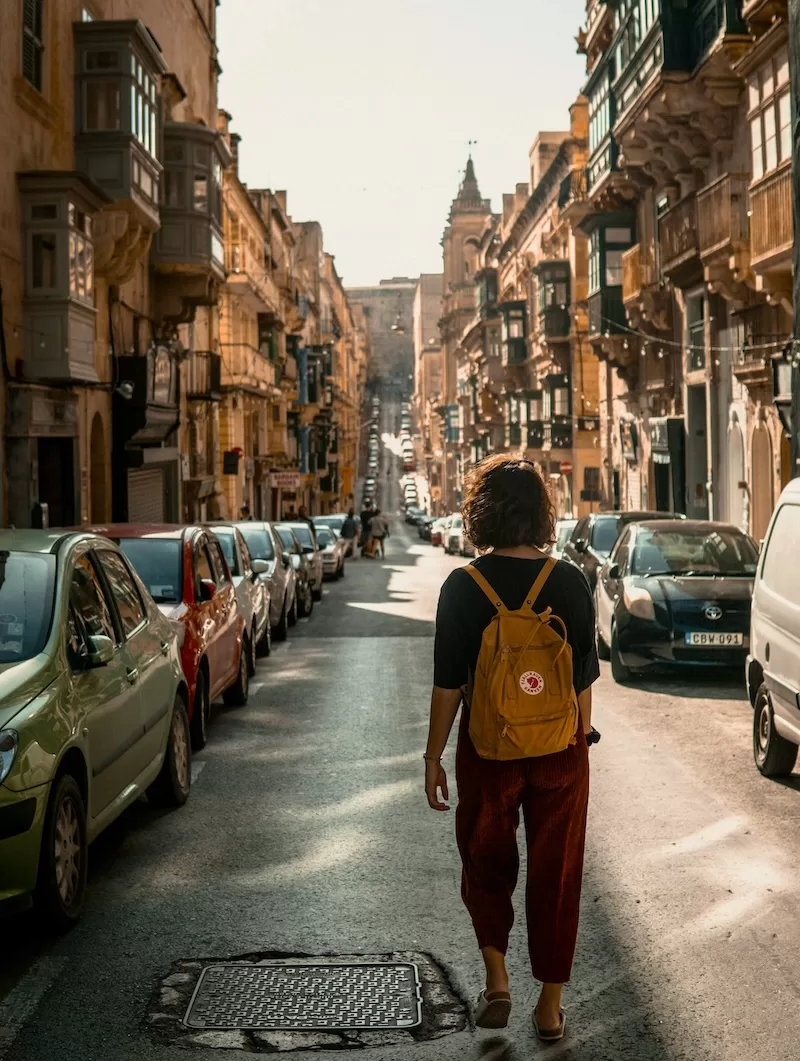
Malta’s record on LGBTQ+ rights stands out not only in the Mediterranean but globally. Since 2016, the country has held the top spot on the ILGA-Europe Rainbow Index, which measures equality laws and protections across the continent. Same-sex marriage has been legal since 2017, gender identity is protected under national law, and discrimination in housing or employment is explicitly banned.
Public attitudes reflect the policy. The “Special Eurobarometer 493: Discrimination in the European Union” from 2019 found that 73% of Maltese respondents agree that gay, lesbian, and bisexual people should have the same rights as heterosexual citizens, the highest rate in southern Europe. Queer-friendly events like Malta Pride Week, beach gatherings at Ghajn Tuffieha, and clubs in St. Julian’s have become fixtures on the local calendar.
Social acceptance is not limited to urban areas. Outside the main towns, smaller communities tend to be reserved but polite rather than hostile. Displays of affection rarely draw attention, and local media regularly feature same-sex couples without controversy. In many ways, Malta demonstrates that progressive legislation can coexist with traditional culture.
Life in Malta for Expats and Residents
Neighborhood Safety
Expat communities often gravitate toward Sliema, St. Julian’s, Gzira, and Msida for proximity to the sea and good transport links. These areas have some of the country’s busiest nightlife, which means more noise but not necessarily more danger. Police patrols are frequent around Paceville, the country’s main entertainment hub, keeping it orderly even during weekend peaks.
For families or those seeking quieter living, Mellieha, Naxxar, and Zebbug are popular. Locals still chat over balconies, and neighborhood watch is more social than formal. Mellieha’s hillside homes overlook one of the island’s safest beaches; Naxxar’s backstreets glow with soft lamplight after dusk. It’s common to see children cycling home from football practice or shopkeepers sweeping their doorstep after closing, gestures that speak volumes about trust.
Property crime is low and declining. According to the CrimeMalta Observatory’s 2024 Annual Review, theft from residences has fallen to its second-lowest level on record, with only 513 reports in 2024, compared to over 1,100 cases in 2005. The report credits this decline to increased community policing, better lighting, and stronger social cohesion. Most incidents involve opportunistic attempts at unlocked doors. A good lock, basic lighting, and a nod to the neighbor next door are usually enough to feel secure.
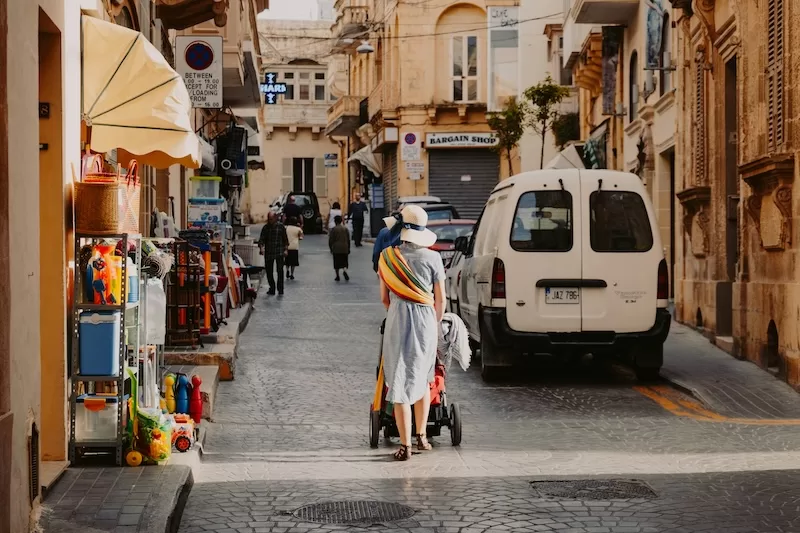
Healthcare, Transport, and Daily Security
Safety in Malta extends to the systems people rely on daily According to the European Observatory on Health Systems and Policies (2024), Malta’s healthcare offers a broad range of services yielding one of the lowest rates of unmet medical needs in the European Union. The island operates both public and private networks, and access is straightforward for residents, expats, and visitors with an EU Health Insurance Card or local registration. The main hospital, Mater Dei, is modern, well-staffed, and supported by regional clinics across Gozo and the mainland, ensuring that medical help is never far away.
Water and food safety meet EU standards. Tap water is treated and regularly tested, though many residents prefer bottled or filtered for taste. Street food is clean, and restaurants are subject to strict inspections.
Public transport connects nearly every town through an extensive bus network. While buses can be crowded in summer, they’re safe and inexpensive. Rideshares like Bolt and eCabs fill the late-night gaps, and traffic enforcement has improved with new speed cameras and road signage. Malta reported fewer than 15 road fatalities in 2024 (Eurostat), among the lowest per capita in the EU.
Walking and cycling are safe in smaller towns and promenades like Sliema, Bugibba, and Marsaskala, though urban drivers can be impatient. The island’s compact layout means most errands, schools, and cafés are within a short walk, keeping everyday life conveniently close and low-risk.
Emergency Services and Local Law Enforcement
Malta’s small size is an advantage in emergencies. The 112 hotline connects instantly to police, fire, and medical services, and response times are impressively fast: in central areas, ambulances usually arrive within 8–10 minutes. The island’s main hospitals, Mater Dei and Gozo General, handle all major cases and are equipped to European standards.
Police stations operate in every district, and officers are approachable, bilingual, and visible. Their presence at public events, markets, and coastal promenades contributes to the sense of calm that defines Maltese public life. Community outreach programs encourage residents to report minor incidents directly, improving transparency and trust.
The Malta Police Force, one of the oldest in Europe, is also digitally modernized, with online reporting tools, crime mapping, and neighborhood liaison officers. For expats, this means quick help and clear communication, without bureaucratic barriers.
Natural Hazards and Environmental Safety
Nature, too, is kind to Malta. The island lies outside major earthquake zones and experiences mild Mediterranean weather, with long, dry summers and short, breezy winters. The main natural concern is flash flooding after intense rain, particularly in low-lying valleys around Msida and Qormi. In response, Malta has implemented large-scale stormwater schemes, including the National Flood Relief Project and ongoing catchment works such as the Msida Creek project, which introduce underground tunnels, diversion structures, and oil and grit separators to move and treat runoff before it reaches bottleneck junctions. These measures target the worst-hit basins identified in national planning and flood-risk maps under the EU Floods Directive.
Beaches and coastal waters are among the cleanest in Europe. The European Environment Agency’s 2024 report found that 92% of Malta’s designated bathing waters were rated “excellent”, meeting or exceeding EU standards. Popular stretches like Golden Bay, Mellieha Bay, and St. George’s Bay are patrolled by lifeguards, and red-flag warnings are strictly enforced.
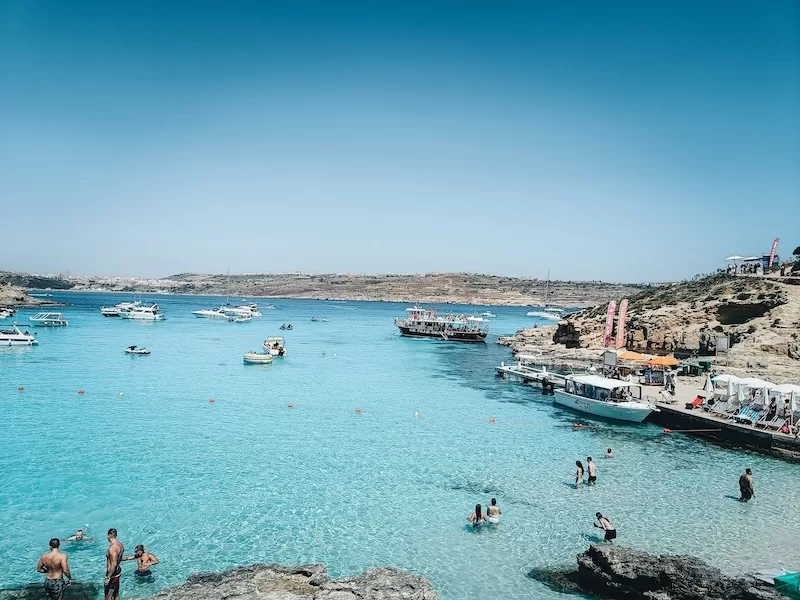
Air quality, once a concern due to traffic, has improved following the shift toward electric vehicles and low-emission buses. For residents and digital nomads who spend much of their time outdoors (in markets, on terraces, or swimming at dawn) Malta’s environment feels not just safe but sustaining.
Read More Like This: Malta
Common Sense Tips for Staying Safe
Staying safe in Malta isn’t complicated. It’s mostly about slowing down, staying aware, and blending into the island’s relaxed pace. A few grounded habits will keep things smooth from the moment you land.
- Zip it up. Keep bags closed in crowded buses, ferries, and Valletta’s narrow lanes. Pickpocketing is rare, but a little care saves a lot of annoyance.
- Lock up the little things. Use hotel safes for passports, extra cash, and jewelry. Most accommodations provide them, and it’s one less worry when you head to the beach.
- Guard against the real threat — the sun. Malta’s light is beautiful but unforgiving. Hydrate constantly, use sunscreen liberally, and plan midday breaks indoors. Locals do, and for good reason.
- Tech deserves shade, too. Avoid leaving phones or laptops on loungers while swimming. Even honest curiosity can turn into temptation.
- Get home the smart way. At night, skip unmarked taxis. Bolt and eCabs are quick, affordable, and traceable, the easiest way to move safely after a few glasses of Maltese wine.
- Drive like a local, not a tourist. Malta’s roads are narrow, and patience counts more than speed. Honking is rare, and politeness tends to win the right of way.
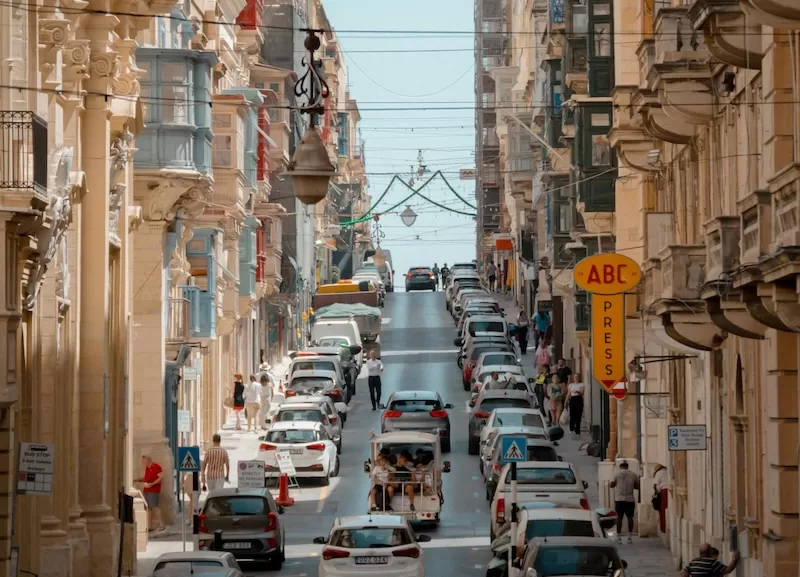
- When renting wheels, document the details. Before leaving the lot, take quick photos of the scooter or car: scratches, dents, and fuel gauge. It’s routine, not paranoia.
In truth, the same good sense that works anywhere works here. Malta rewards calm attention more than caution.
FAQs
Q1. Is Malta safe for solo female travelers?
Yes. Women consistently describe Malta as one of the easiest and most comfortable countries in Europe to explore alone. Street harassment is rare, and locals are quick to help if someone looks lost or uncomfortable. The only time extra awareness helps is around nightlife zones like Paceville, where crowds can get boisterous.
Q2. What is the crime rate in Malta compared to other EU countries?
According to Eurostat and Numbeo, Malta’s crime index sits around 39 out of 100, well below the European average of 52. Reported offenses have dropped steadily over the past decade, placing Malta among the safest nations in the EU.
Q3. Are there dangerous areas to avoid in Malta?
No areas are considered genuinely unsafe. Some nightlife spots in St. Julian’s can be loud or chaotic on weekends, but they’re well-policed. The rest of the island (from Mdina’s silent streets to Gozo’s coastal villages) remains calm and welcoming day and night.
Q4. Is Malta safe for expats?
Absolutely. The island’s small scale, strong healthcare system, and English-speaking population make it especially appealing for retirees and remote workers. Community networks are active, and neighborhoods maintain a strong sense of trust and visibility.
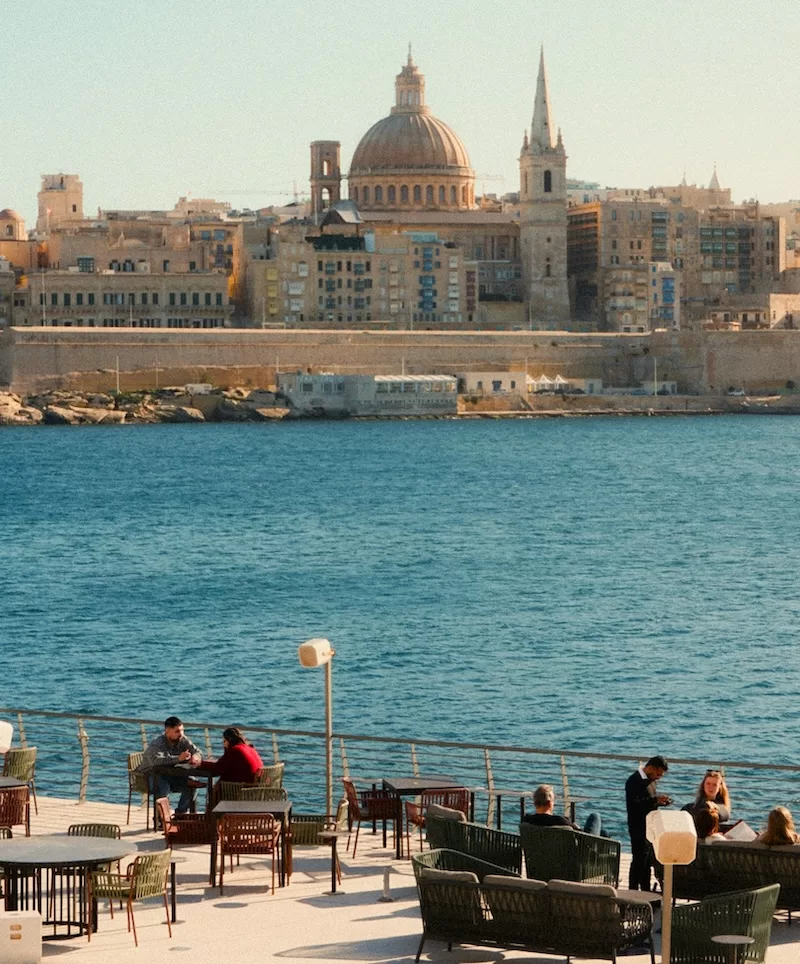
Q5. Are there any health or environmental risks?
The main issues are minor flooding after heavy rain and intense summer heat. Tap water and food hygiene meet EU standards, and Malta’s coastal bathing waters were rated 92% “excellent” by the European Environment Agency (2024).
Q6. Is public transport safe in Malta?
Yes. Public buses and ferries are reliable, affordable, and widely used by locals. Petty theft is uncommon, and most services operate under CCTV surveillance. Ride apps like Bolt and eCabs are regulated and considered among the safest in southern Europe.
Q7. Is Malta safe for LGBTQ+ travelers?
Very much so. Malta ranks #1 in Europe on the ILGA-Europe Rainbow Index for equality laws and protections. Same-sex marriage and adoption are legal, and public attitudes toward LGBTQ+ people are broadly accepting.
Q8. What should travelers watch out for on the road?
Driving is on the left-hand side, and local drivers can be assertive. Roads are generally safe but narrow, so patience and caution go a long way. Speed limits are moderate, and seatbelts are required by law for all passengers.
Q9. How safe is the sea for swimming and diving?
Very safe. Malta’s waters are clear, calm, and heavily monitored during summer. Lifeguards are stationed at major beaches, and diving schools are EU-certified. Currents can be stronger around rocky inlets, but signage and red flags mark unsafe conditions.
Q10. Are natural disasters a concern in Malta?
No. Malta lies outside major earthquake zones and experiences no hurricanes or volcanic activity. The most frequent weather risk is heavy rain causing temporary flooding, which the government continues to mitigate through new stormwater infrastructure.
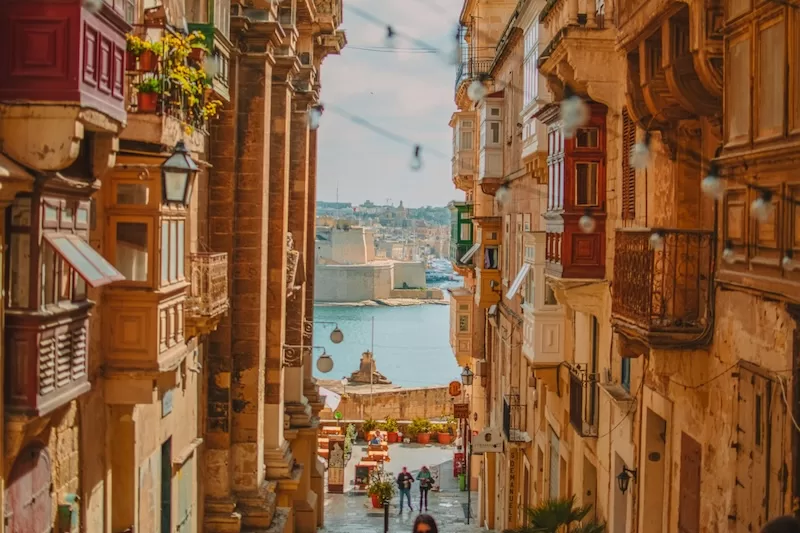
A Small Island Built on Trust
Malta’s safety is not an illusion of scale or tourist marketing. It’s a byproduct of community, of people who still greet neighbors by name, of towns where children play in public squares, and of a national character that values calm over confrontation.
For travelers and new residents, that translates to something simple but precious: peace of mind. You can walk home under warm streetlights, leave your towel on a rock before swimming, and know it will still be there when you return.
If you’re weighing your next move abroad or simply curious about safer corners of Europe, Malta deserves a closer look.
Join the Escape Artist newsletter for a world of insider knowledge, from the best places to live and invest to firsthand stories and updates from communities like Malta, Costa Rica, and beyond.
Contact Author
"*" indicates required fields
Stay Ahead on Every Adventure!
Stay updated with the World News on Escape Artist. Get all the travel news, international destinations, expat living, moving abroad, Lifestyle Tips, and digital nomad opportunities. Your next journey starts here—don’t miss a moment! Subscribe Now!
